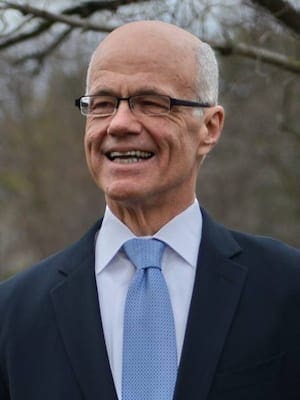Do you think anybody ever really changes?
When my wife, Anita, and I were in seminary, we served a small and loving congregation in southern Indiana.
One of our next-door neighbors, a generous man in his late 50s and a faithful church member, was crustily cynical about the possibility of change.
At some point in nearly every conversation, he’d circle around to his favorite question. “Do you think anybody ever really changes?”
It wasn’t really a question at all; it was a flat statement of his skepticism.
The first few times he asked, I gave him some examples of people who had, as I saw it, undergone significant transformation.
I also reminded him about Bible stories he knew as well as I did: vacillating Simon becoming bedrock Peter, church-persecuting Saul becoming gospel-preaching Paul, and Jesus’ encouraging Nicodemus to be “born again,” despite Nicodemus’ protest (based on wooden literalizing of Jesus words) that old men can’t crawl back into their mothers’ wombs and be born a second time.
My neighbor would listen impatiently and then say something like, “Well, maybe there’s an exception or two, but most people stay who they are. A leopard can’t change its spots. Once a crook, always a crook.”
Sometime during those seminary years, my grandfather, Fred, asked me, “Son, can you explain to me how a man can go to church nearly all his life, hear all those sermons and sing all those songs, and still be as mean as a snake on the day he dies – as mean as he was when he first darkened the door of the church?”
I couldn’t explain it.
For a long time now, I’ve been asking versions of those questions – not so much, “Can people change?” because I’ve seen that it is possible, but more along the line of “How can people change?”
We’ve got to admit that even modest change can be difficult.
Several years ago, centenarians Sadie and Bessie Delaney released their charming memoir, “Having Our Say.”
Reflecting on lessons she’d learned, Bessie commented, “I thought I could change the world. It took me a hundred years to figure out that I can’t change the world. I can only change Bessie. And, honey, that ain’t easy either.”
It ain’t easy because, even though change is possible, it isn’t a self-help project.
We can’t change ourselves by ourselves. We need emotional-spiritual energy from beyond ourselves, a magnetic vision of the change we hope for, wisdom about the ways change happens and support from others.
Without those resources, the inertia of habit will keep us stuck, the entropy of discouragement will deplete us, and the gravity of the status quo will ground us.
One name for the emotional-spiritual energy we need is grace.
Grace describes the gift of realizing, to paraphrase Paul Tillich, that we are accepted unconditionally despite our simultaneous and sometimes overwhelming awareness that we are unacceptable.
Experiencing the full acceptance of the Divine, or sensing that the world welcomes us without reservation, or feeling that there is at least one person’s heart that is a shelter for us is necessary for us to be able to accept, welcome and be at home with ourselves.
Grace also names the power of restoration and healing.
I trust that God wills our wholeness, which isn’t perfection or flawlessness or the absence of brokenness.
Instead, wholeness is the flourishing that emerges along with our astonished gratitude for the forgiveness we receive, for the compassion we learn from living honestly with our flaws and for the capacities for “all-is-wellness” that brokenness can create is us.
Jesus said, “I have come that they might have life and have it more abundantly.” One way to understand the purpose of life is to grow into that promised abundance of life. It is a gift of grace.
It’s also an invitation to answer and a challenge to undertake. It’s work, but it’s work we do collaboratively and gratefully, in partnership with love and people who love us.
Guy Sayles is a consultant with the Center for Healthy Churches (CHC), an assistant professor of religion at Mars Hill University, an adjunct professor at Gardner-Webb Divinity School and a board member of the Baptist Center for Ethics. A version of this article first appeared on his website, From the Intersection, and is used with permission.

